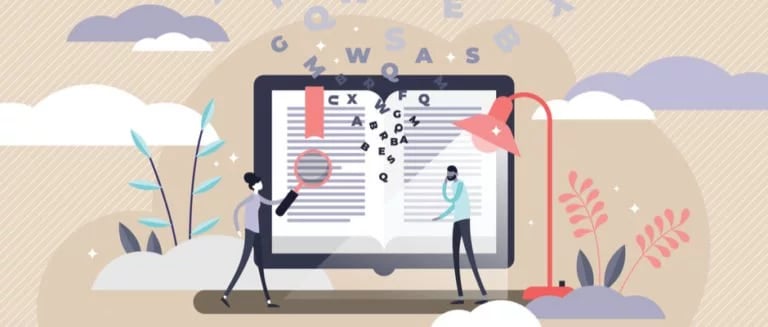The Gist:
- Salespeople who don’t rehearse their language for common sales conversations are less effective than they would be with better language.
- These common conversations are mostly predictable and there is never a reason not to design effective language, something that will allow you to improvise more, not less.
- Your best language will be the most helpful to your clients while also creating a preference to work with you.
A LinkedIn post claimed that the problem with sales scripts is that your prospective client doesn’t know their side of the script. Wonka would rightly say, “Scratch that. Reverse it.” It is possible to get things exactly wrong by putting things in the wrong order. Particularly in a sales conversation that is nonlinear in nature, it’s closer to the truth that the salesperson doesn’t know their side of the script.
Why Bad Salespeople Hate Role-playing
The reason bad salespeople hate role-playing sales scenarios is that their peers and their manager are watching and listening to what they say, preparing to provide feedback. Many salespeople would prefer to have a root canal, open heart surgery, brain surgery, and a colonoscopy all at the same time—while being forced to listen to Phish cover Nickelback—instead of using a sales script.
The script-hating salesperson will often tell you that they don’t need scripts, since they are more comfortable improvising and thinking on their feet. Anyone who has ever experienced “Improv Night” at a comedy club will know exactly how uneven the performance is, even from a professional improv troupe. For sure, it’s important to be able to respond to the questions or challenges that decision-makers throw at you. But the idea of improvising means going off the script.
How to Spot a Salesperson without a Script
It is incredibly easy to identify a salesperson who doesn’t know their side of the script. When a contact answers the phone, they stand up and take the call into an empty conference room or some other place where they are certain no one can hear them.
Salespeople with good sales scripts, whether they call them “talk tracks,” “talking points,” or better, “planned dialogue,” are never worried about anyone listening in on their phone call, with the cockiest reps doing their best impression of Vin Diesel’s character in Boiler Room (Vin’s confidence is worth emulating, but avoid the hard sell and robbing people part—unless you need a warm place to sleep, three meals a day, and some new friends who think orange is the new black).
You Use a Lot of Bad Words
Salespeople often pick up language from their peers without knowing whether that language is good. The salespeople they are modeling likely picked it up from another salesperson that they sat close enough to overhear. Those who don’t particularly like scales scripts are almost certain to be using ineffective words and phrases.
Here’s one you can hear on every sales floor in the United States: “Is now a good time?” You can also hear the dial tone when the contact hangs up after an easy excuse: “No, I am running into a meeting. Try me later.” The punishing insincerity seeps into the salesperson’s ear, infecting them with idea that is difficult to get meetings.
Or there’s this gem: “If you can sign the contract by Friday, I can give you a fifteen percent discount.” It’s an incredibly poor attempt at closing a deal using equally awful language. Up to that point, I hope, the salesperson has worked very hard to differentiate themselves and their solution, positioning themselves as creating the greatest value when compared to competitor’s and alternatives. Now, they admit that the whole thing is worth less than the price they gave the client. “Make it 25% and I’ll sign the contract today,” a savvy client will shoot back. Way to let the client know you’re desperate, Jimmy.
If those examples sound familiar, you’re already using scripts—just not ones that are effective enough to help you create and win deals, let alone big deals.
What is Sales, Exactly?
Frequent readers will know that I describe the sales process and buyer’s journey as “the sales conversation.” That’s because the only thing we do in sales is talk with our clients. When you make a phone call to a client, you are starting a conversation. When you show up to meet with them, that meeting is another conversation. And of course, what is discovery if not a conversation?
If the sum total of everything you do is a conversation, you must become incredibly adept at successfully leading that conversation. Effective language is better than ineffective language. Language that serves the client is better than language that doesn’t create the value they need you to deliver, which is why you need to think like a client. The better and more impactful your language, the better your results.
There is no reason that a professional, consultative, B2B salesperson should not know how to effectively answer all of their clients’ common questions, resolve all their common concerns, provide them with insights, and ask the powerful questions that help them improve their results.
The Occasional Question from Left Field
Occasionally, your contact with come up with something you’ve never heard, something not only off your script but outside your experience. The first time you hear someone say, “I need you to put $50,000 in a brown paper bag and drop it off at my office,” you’re likely to struggle. You may need to improvise, but not as much as you might believe. I replied, “Where in the hell am I going to get a brown paper bag?”
It is negligent not to have very well-designed, impactful, and effective language for all the day-to-day conversations you have in sales. You should also know your client’s side of the sales conversation as well as you know yours, meaning you are never caught off guard by something like “Can you give me a better deal?” or “Your competitor’s price is eight percent lower than yours.”
Better Language
Instead of asking if it’s a good time for your prospect to talk, say: “My name is Inigo Montoya, and I am with Dread Pirate Roberts Inc. I am calling you today to ask you for a twenty-minute meeting, so I can share an executive briefing on the four trends that will impact your industry over the next twelve to eighteen months. Even if there are no next steps now, I’ll leave you with the deck and some questions you can share with your team. What does Thursday afternoon look like?”
If they ask you to just send them the information, say: “The conversation is more important than the information. I understand your time is valuable, and I won’t waste a single minute of the twenty. What works for you later this week?”
Instead of offering your client a discount, say: “Unless there are any concerns I haven’t resolved for you, I’d like to ask you to sign a contract so I can put this solution in place for you. Is there anything you need, or can you sign this contract so we can get moving?”
Do Good Work
- Write down the language you use in the common conversations you have with your clients, then look for ways to improve your talk tracks.
- Pay attention to the questions, challenges, and prompts your clients throw at you, then design effective responses to explore in future conversations.
Remove bad and ineffective language choices and work with your peers or your team to replace them with better phrasing.

Get the Free eBook!
Sales Call Planner Guide
Your dream client expects you to know how to help them and what that process should look like. Execute your best sales calls with this free sales call planner!
Download Now









.jpg?width=768&height=994&name=salescall-planner-ebook-v3-1-cover%20(1).jpg)


